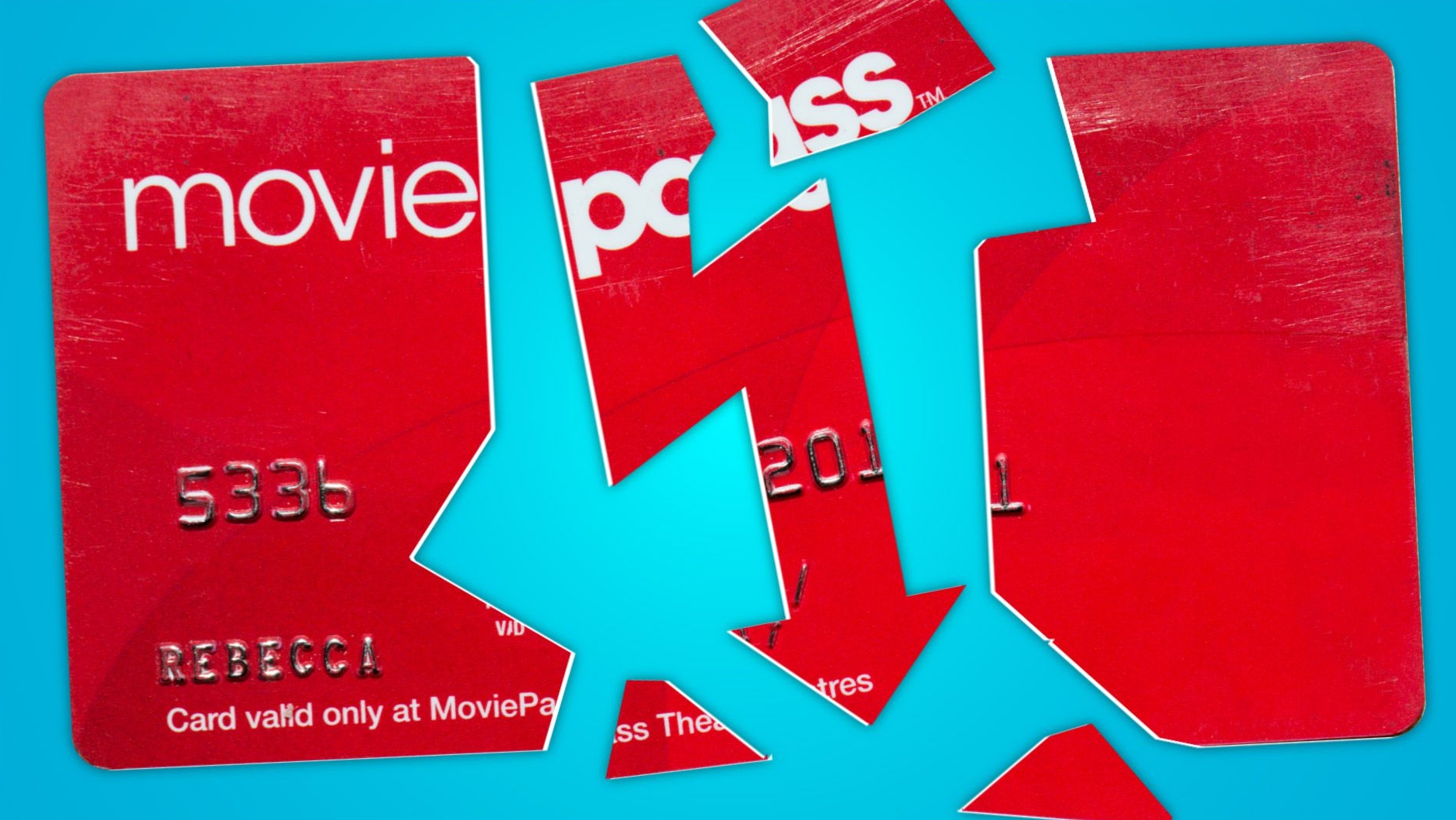
Theory one: The people at MoviePass aren't too bright, and got themselves into a business model that couldn't possibly succeed.
Maybe. One could argue that anyone who has ever tried to start a new business is suffering from a highly specialized form of stupidity: believing, against all evidence, that their company will be one of the lucky minority that doesn't spiral down the drain. Most companies fail. Even most companies founded by previously successful entrepreneurs fail.
Bringing disruptive innovation to pricing movie tickets must have seemed like a smart move. Movie seats are in a class of businesses- like airlines and hotels- that produce strange pricing incentives. A room in a hotel, or a seat on a plane or in a movie theater, is a rapidly wasting asset: As soon as the next day dawns, or the flight takes off or the movie begins, you've lost any opportunity to sell it. Moreover, while it is expensive to operate a hotel, to put a plane in the air or to build a movie theater and rent films from distributors, it costs very little extra to add one more customer.
Ideally, you'd sell out every room or every seat, even if those last few customers aren't willing to pay much more than the expense of cleaning up after them. But if you sell tickets too cheaply to those last few customers, the other customers are bound to notice and demand the same price. That way lies bankruptcy.
Airlines get around the problem by offering cheap fares to customers who shop strictly by price, but provide a wide array of options - from more leg room to first-class travel - for higher fees.
Movie theaters haven't really done this; for a long time, to the puzzlement of economists, they've charged basically the same price for popular movies and unpopular movies, for hot new releases and old ones, for Friday nights and Tuesday afternoons. The result? Fewer people going to movies than would be economically efficient in a better-priced world. Some theaters are experimenting with Uber-style surge pricing, but distributors want to keep prices the same for all films because their success is so dependent on the opening-weekend box office.
In theory, MoviePass could solve that problem from the other end: Entice price-sensitive customers to go to more movies by making additional movies essentially free. The details of the deal have varied over time; earlier this year, $7.95 monthly let you see one movie a day. The idea should have appealed to movie-theater owners because more customers mean increased concession sales at little additional cost. Once MoviePass had demonstrated proof-of-concept, theaters could have been expected to sell tickets to the company in bulk, at a discount.
Which brings us to . . .
Theory two: Discount customers aren't necessarily good for businesses.
Notice that this business model - "We'll bring you a bunch of new customers you can upsell on extras" - was essentially the pitch that the e-commerce company Groupon made to businesses. New discount-loving customers flooded in, but owners soon complained that the customers were essentially upsell-resistant cheapskates who often ended up costing the businesses money. Which is why Groupon no longer offers such great deals, and why the stock now trades at a sad fraction of its price at its initial public offering.
Deep discounts can also cannibalize a profitable business. Who was most likely to use MoviePass? People who go to the movies a lot! If theaters had supplied MoviePass with the deeply discounted tickets that its pricing model required, the theaters would have been passing up the opportunity to sell more full-price tickets to loyal customers. No wonder theaters balked. And since a single movie ticket in the largest markets costs more than a monthly MoviePass subscription, the MoviePass business model ended up as a version of the old economics joke: "We're losing money on every unit - but we'll make it up in volume!"
Then again, theater owners may have had a darker motive for not cooperating: The AMC chain recently launched its own rival service, AMC Stubs. It cost more than the MoviePass subscription, let you see a still-bountiful three movies a week instead of one per day, and enrolled nearly 200,000 customers in its first five weeks of operation.
Which brings us to . . .
Theory three: The folks with the good idea may not be the ones who profit from it.
If you've ever had a CT scan, you can thank a British company called EMI Laboratories, which developed the first machines. "EMI scans" gave way to CT scans (for computed tomography) because the company lost its business. Companies like General Electric ended up the big winners from technology the Brits had developed. How could this happen? Because EMI was a conglomerate with diverse interests, and GE, with a thriving health-care diagnostics division, was better positioned in the 1970s to exploit the technology.
AMC is simply in a better position than MoviePass to sell movie tickets. AMC has the data to manage demand; it has a built-in customer base with its loyalty program, and it can keep MoviePass at bay simply by refusing to sell discounted tickets.
Many upstart companies face this sort of competition and survive. The Netflix streaming service could have been killed off if studios had made a serious effort to build a competitor. But they couldn't bear to cannibalize their extremely profitable movie and television businesses, and Netflix hung around long enough to establish itself as a rival.
AMC, however, has only one line of business: selling seats in movie theaters, and maybe some popcorn and soda. Which means MoviePass probably won't survive, even if its legacy is a movie-theater subscription model that encourages more gorging on entertainment.
Megan McArdle is a Washington Post columnist who writes on economics, business and public policy. She is the author of "The Up Side of Down." McArdle previously wrote for Newsweek-the Daily Beast, Bloomberg View,the Atlantic and the Economist.


 Contact The Editor
Contact The Editor
 Articles By This Author
Articles By This Author